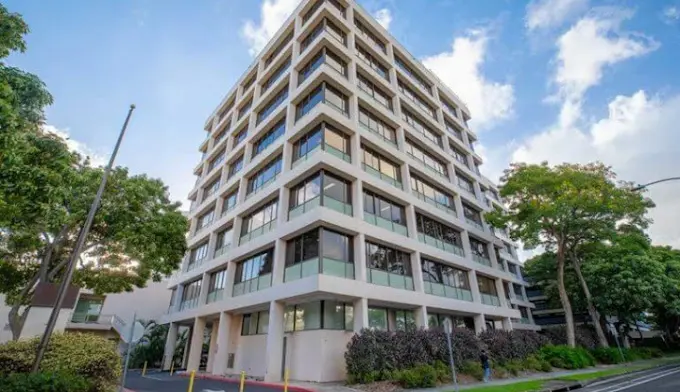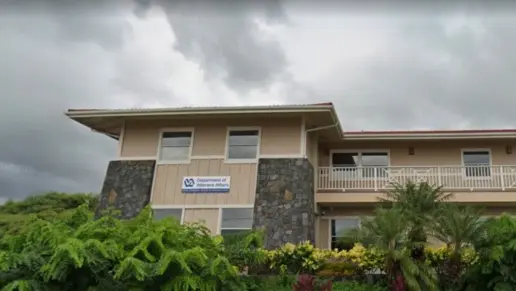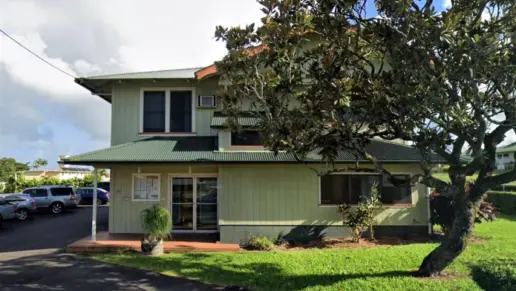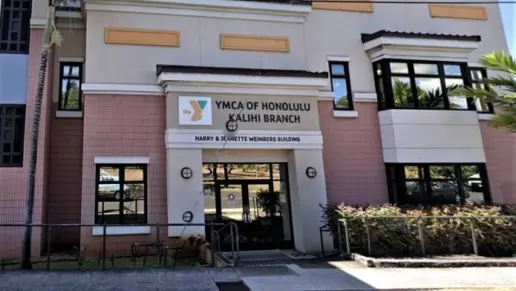I find it kinda sad that there is people in the social work field that are not caring or professional. Some nurses in this palce act in a manner that is bullying and immature I would say. Administration should check on this
About Outpatient Behavioral Health Services – The Queen’s Medical Center
Specialty rehab programs at Outpatient Behavioral Health Services – The Queen’s Medical Center include tailored care focusing on women's specific needs and experiences, gender-specific addiction treatment addressing unique challenges faced by men, and age-appropriate treatment for teens addressing adolescent-specific issues.
Patients at Outpatient Behavioral Health Services – The Queen’s Medical Center will find the private transportation allows for discreet and convenient travel to appointments and the private rooms that give personal space for reflection and undisturbed rest during treatment.
Outpatient Behavioral Health Services – The Queen’s Medical Center has received accreditations from the state of Hawaii and The Joint Commission.
Latest Reviews
Rehab Score
Gallery

Location
Accepted Insurance
Other Forms of Payment
Private insurance refers to any kind of healthcare coverage that isn't from the state or federal government. This includes individual and family plans offered by an employer or purchased from the Insurance Marketplace. Every plan will have different requirements and out of pocket costs so be sure to get the full details before you start treatment.
Self-pay involves paying for treatment out of your own pocket. You can use savings or credit, get a personal loan, or receive help from family and friends to fund your treatment. If you don't have insurance or your insurance plan doesn't cover a specific program, self-pay can help ensure you still get the care you need.
Financial aid can take many forms. Centers may have grants or scholarships available to clients who meet eligibility requirements. Programs that receive SAMHSA grants may have financial aid available for those who need treatment as well. Grants and scholarships can help you pai for treatment without having to repay.
Medicare is a federal program that provides health insurance for those 65 and older. It also serves people under 65 with chronic and disabling health challenges. To use Medicare for addiction treatment you need to find a program that accepts Medicare and is in network with your plan. Out of pocket costs and preauthorization requirements vary, so always check with your provider.
Medicaid is a state based program that helps lower-income individuals and families pay for healthcare. Medicaid covers addiction treatment so those enrolled can use their coverage to pay for rehab. When a program accepts Medicaid the client often pays very little or nothing out of their own pocket.
Military members, veterans, and eligible dependents have access to specific insurance programs that help them get the care they need. TRICARE and VA insurance can help you access low cost or no cost addiction and mental health treatment. Programs that accept military insurance often have targeted treatment focused on the unique challenges military members, veterans, and their families face.
Addiction Treatments
Levels of Care
Treatments
The goal of treatment for alcoholism is abstinence. Those with poor social support, poor motivation, or psychiatric disorders tend to relapse within a few years of treatment. For these people, success is measured by longer periods of abstinence, reduced use of alcohol, better health, and improved social functioning. Recovery and Maintenance are usually based on 12 step programs and AA meetings.
Drug rehab in Hawaii is for individuals suffering from substance use disorders. Treatment addresses the many issues involved with addiction, typically through a combination of medical and psychotherapy treatments.
Many of those suffering from addiction also suffer from mental or emotional illnesses like schizophrenia, bipolar disorder, depression, or anxiety disorders. Rehab and other substance abuse facilities treating those with a dual diagnosis or co-occurring disorder administer psychiatric treatment to address the person's mental health issue in addition to drug and alcohol rehabilitation.
Opioid rehabs specialize in supporting those recovering from opioid addiction. They treat those suffering from addiction to illegal opioids like heroin, as well as prescription drugs like oxycodone. These centers typically combine both physical as well as mental and emotional support to help stop addiction. Physical support often includes medical detox and subsequent medical support (including medication), and mental support includes in-depth therapy to address the underlying causes of addiction.
Substance rehabs focus on helping individuals recover from substance abuse, including alcohol and drug addiction (both illegal and prescription drugs). They often include the opportunity to engage in both individual as well as group therapy.
Programs


Clinical Services
During cognitive behavioral therapy in Hawaii, patients learn about their mental and behavioral health conditions and then learn techniques to help them change their patterns of thinking and behavior. Tools such as stress management, coping, and assertiveness are used to break free from patterns of substance abuse.
During dialectical behavior therapy in Hawaii, you'll focus on developing skills that allow you to manage daily life challenges. The main areas of focus are emotional regulation, interpersonal effectiveness, distress tolerance, and mindfulness.
Group therapy is any therapeutic work that happens in a group (not one-on-one). There are a number of different group therapy modalities, including support groups, experiential therapy, psycho-education, and more. Group therapy involves treatment as well as processing interaction between group members.
Customized individual therapy programs involve one on one sessions with a therapist to address the psychological aspects of addictive behavior. Your therapist uses evidence based treatment modalities to help you develop healthy coping strategies and manage addiction triggers within the community.
Motivational interviewing is simply a conversation about change. The therapist seeks to encourage the client's personal motivation to change and collaborate with them to make a commitment to change. This technique is often used in drug rehab therapy in Hawaii.
Trauma therapy addresses traumatic incidents from a client's past that are likely affecting their present-day experience. Trauma is often one of the primary triggers and potential causes of addiction, and can stem from child sexual abuse, domestic violence, having a parent with a mental illness, losing one or both parents at a young age, teenage or adult sexual assault, or any number of other factors. The purpose of trauma therapy is to allow a patient to process trauma and move through and past it, with the help of trained and compassionate mental health professionals.
During couples therapy in Hawaii, your therapist may borrow techniques from multiple forms of therapy based on your needs. Methods may include cognitive behavioral therapy and emotionally focused therapy. The ultimate goal of treatment is a stronger relationship.
Family therapy engages members in a collective effort to understand and combat addiction. Therapists help families establish healthy boundaries and improve emotional support systems. By working together, family members can help their loved one sustain long term recovery.
During treatment, you'll work on strengthening any life skills you'll need after rehab. These may include interpersonal communication, finding a job, managing finances, and coping with stress. These skills cover the basic tasks you'll need to accomplish to successfully maintain sobriety.
Amenities
-
Private Transportation
-
Private Rooms
Accreditations

State Licenses are permits issued by government agencies that allow rehab organizations to conduct business legally within a certain geographical area. Typically, the kind of program a rehab facility offers, along with its physical location, determines which licenses are required to operate legally.
State License: Hawaii

The Joint Commission, formerly known as JCAHO, is a nonprofit organization that accredits rehab organizations and programs. Founded in 1951, the Joint Commision's mission is to improve the quality of patient care and demonstrating the quality of patient care.
Joint Commission Accreditation: Yes
Contact Information
Kaheiheimalie Building
1374 Nuuanu Ave
Honolulu, HI 96817








